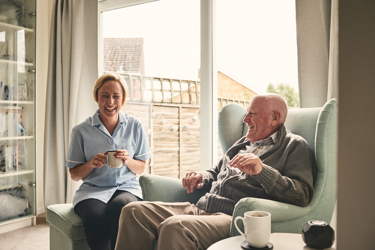The Value And Impact Of Decentralizing An Oncology Trial

For oncology patients navigating the particulars of their cancer and treatment plan, adding a clinical trial to the mix might feel overwhelming. However, for others, the prospect of being part of a clinical trial affords them hope in a time when it may feel like there are no other options. Oncology patients who participate in clinical trials have the prospect of receiving high-quality care, gaining access to otherwise inaccessible treatment, and giving back to others who may one day suffer from a similar diagnosis. However, for clinical trials to be worthwhile to oncology patients enduring high-toxicity treatments, physical pain, and emotional distress, patient comfort, and access must be built into their trial design from the outset.
One strategy for making trials more flexible for cancer patients is leveraging hybrid or decentralized clinical trial (DCT) models that allow patients to receive at least a portion – if not all – of their care at home. If a sponsor doesn’t have previous experience navigating DCTs, they might consider partnering with an experienced clinical trial support organization that emphasizes patient centricity and remote care. DCTs afford patients greater flexibility and reduced participation burden. Download the full article to learn more about how to design a DCT that is truly patient-centric.
Get unlimited access to:
Enter your credentials below to log in. Not yet a member of Clinical Leader? Subscribe today.
